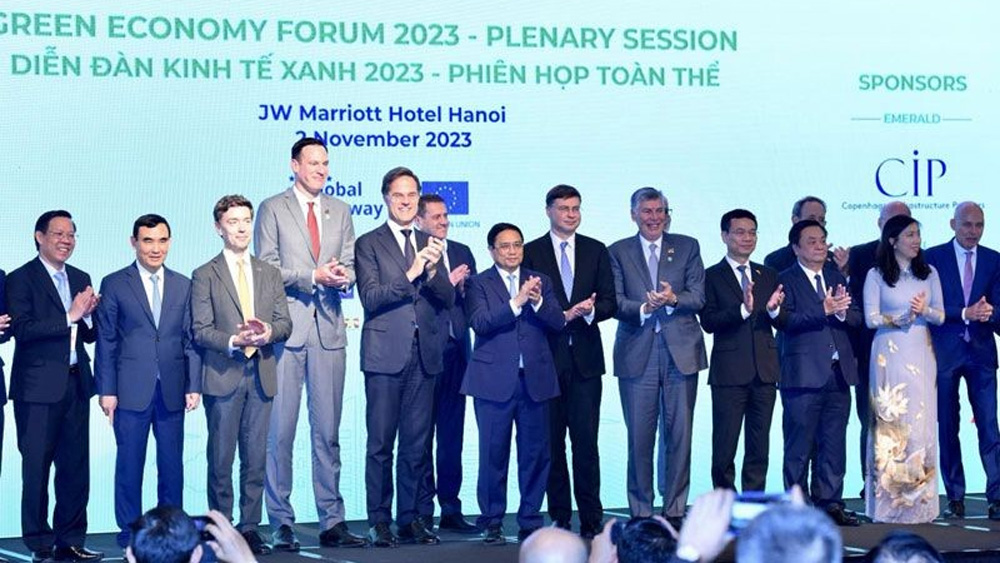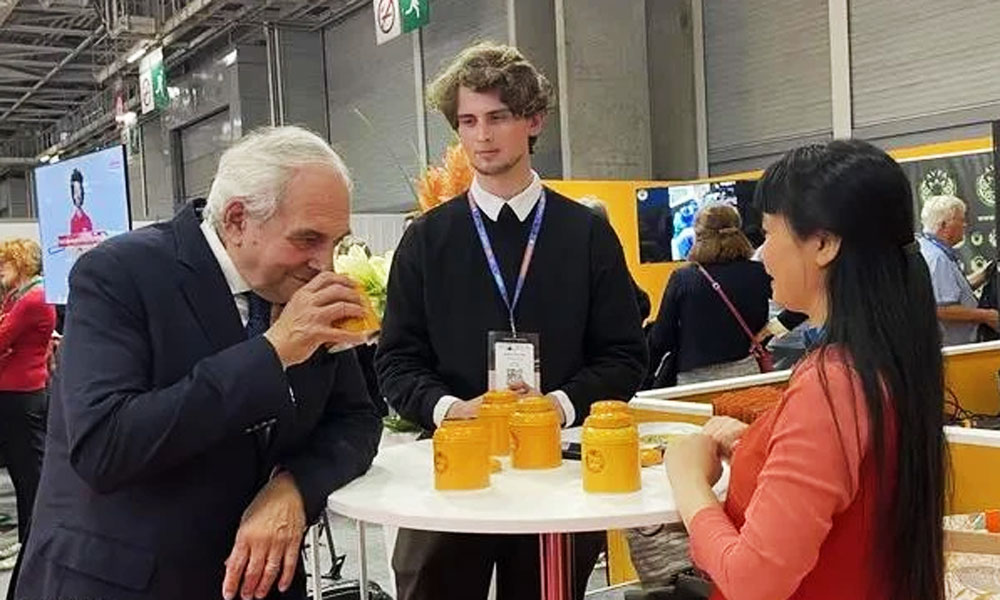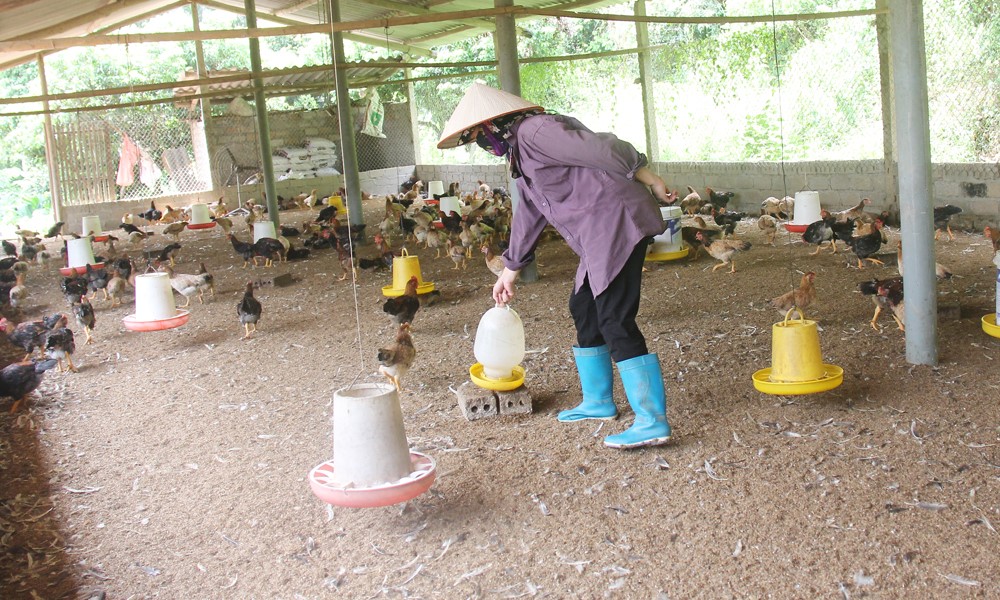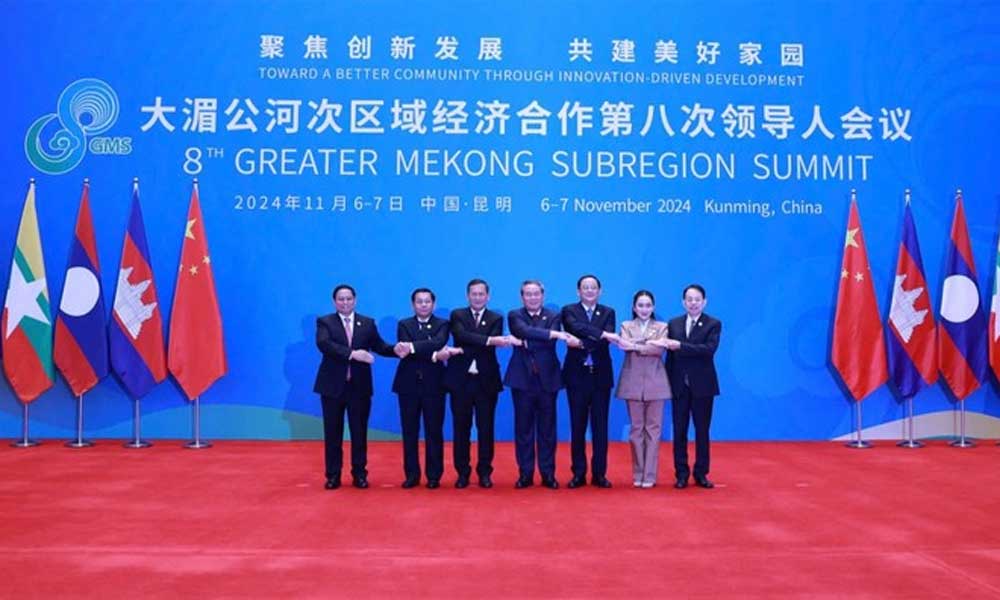Vietnamese, Dutch PMs attend high-tech business, green economy forums
In his speech at the hi-tech business forum, PM Rutte said during this visit, he is accompanied by a delegation of nearly 30 leading hi-tech Dutch companies. Many of them are embarking on investment projects in Vietnam while several others are exploring opportunities in the country.
 |
|
Prime Minister Pham Minh Chinh and his Dutch counterpart Mark Rutte at the Green Economy Forum. |
He said he hopes the forum will help the two countries' agencies and companies understand better the potential of bilateral cooperation, thus promoting investment and partnership.
Describing the Netherlands as a vibrant and innovative country, PM Chinh said the Netherlands is the biggest EU investor in Vietnam and the second biggest European trade partner of Vietnam. However, the two countries still have great potential to expand their cooperation, particularly in science-technology and innovation.
He suggested Dutch firms should promptly come up with specific plans to connect with Vietnamese enterprises in hi-tech agriculture, new and renewable energy, semiconductors, climate change adaptation, shipbuilding services, and other sectors via hi-tech projects that offer high added value and are capable to join the global value chain.
The PM encouraged Dutch businesses, corporations, and research institutes to consider and actively engage in comprehensive cooperation with Vietnam through the National Innovation Centre and hi-tech zones in Vietnam.
At the event, the two PMs witnessed the exchange of cooperation agreement documents between Vietnamese and Dutch agencies and enterprises in the fields of innovation, creativity and finance.
The same day, the two government leaders attended the plenary session of the 2023 Green Economy Forum (GEF) themed "European-Vietnamese Collaboration Fuels Green Initiatives” in the capital city.
PM Rutte said it is a special moment in the Vietnam-Netherlands relationship as the two countries are celebrating the 50th anniversary of bilateral diplomatic ties. The Netherlands is now the largest European investor in Vietnam, and 60% of Vietnam's exports to Europe come ashore at the port of Rotterdam.
He said while Vietnam has achieved rapid economic growth, both the Netherlands and Vietnam are facing environmental challenges, requiring the joint efforts of all stakeholders, first of all the business community. Both producers and suppliers are required to comply with the new sustainability regulations set by the European Union (EU), he said, suggesting that Dutch firms assist their Vietnamese partners in this field.
PM Chinh, for his part, affirmed that Vietnam always considers EU one of its reliable and most important partners in its foreign policy.
Vietnam attaches importance to pursuing rapid yet sustainable, inclusive development rather than economic growth at the expense of progress, social equity and environment protection, he said, adding that the country commits to always protecting the legitimate rights and interests of foreign investors in any circumstance.
He asserted that Vietnam strongly supports the EU's strategies, initiatives, and policies for green development, and will seriously follow regulations related to green production.
The Vietnamese PM wished that the EU would continue to assist Vietnam in the win-win spirit in building mechanisms, policies, technology transfer, financial resource arrangement, high-quality workforce training, and enhancing managerial capabilities to promote green development.
On the occasion, the PM asked Dutch officials to push for the ratification of the EU-Vietnam Investment Protection Agreement (EVIPA) and the European Commission’s removal of the yellow card warning against Vietnam related to illegal, unreported and unregulated (IUU) fishing.
The Vietnamese Government leader wished that partners and investors would continue to invest in the Mekong Delta, particularly in climate change response, strategic infrastructure development, the 1-million-ha quality rice cultivation project, and emissions reduction to contribute to global food security.
Participants engaged in discussions on various topics, including common future - opportunities and challenges in pursuing sustainability in the economy, security and sustainability of the energy system, transparency and resilience of the financial system, food sovereignty, carbon emission reduction and circular economy.
Source: VNA
 Bắc giang
Bắc giang















Reader's comments (0)